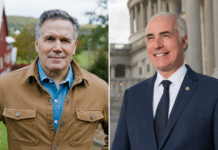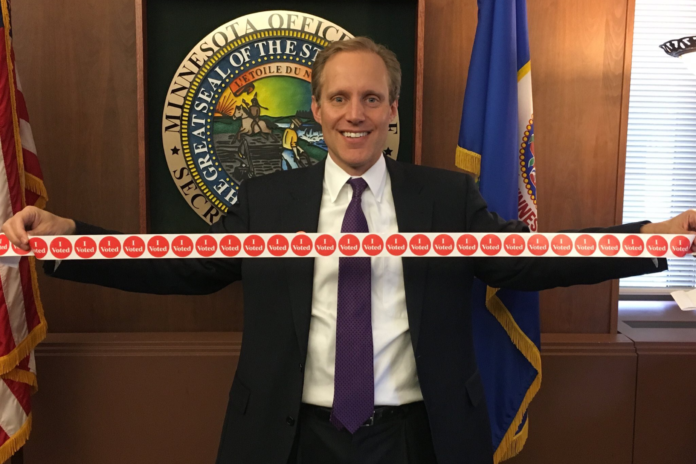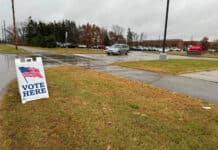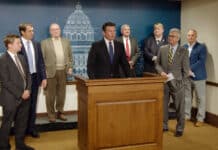The Minnesota Voters Alliance (MVA), a nonpartisan organization focused on election integrity and voter education, does not accept the 2020 General Election results as reported by the Minnesota Secretary of State (SOS).
To be clear, the MVA is not saying there was fraud or irregularities that changed the outcome of a specific race, though the MVA has received scores of reports that point to fraud and irregularities. As evidence warrants it, the MVA will update its post-election reporting on fraud and other voting irregularities. For now, the MVA’s early post-election position is that Election 2020 was not conducted in a lawful manner per Minnesota statutes.
The MVA’s list below points to some of the practices and laws that undermine confidence in the integrity of Minnesota elections.
This list points not only to bad election policies but also to a failure of our election officials to follow election law, good or bad, as written.
Most troubling is a blatant re-writing and disregard of election law by Secretary of State Steve Simon, with the apparent blessing of Gov. Tim Walz and his predecessor Mark Dayton. Simon enables election officials throughout the state through his guidance to ignore black letter law, and in 2020 engaged in pre-election legal settlements that changed election laws for both the primary and general election.
Some of this lawless behavior pre-dates Covid-related policy changes, though the conduct of elections in 2020 brought Minnesota to an all-time low.
Minnesota’s Election Integrity Issues:
- Election Day voting policies are an invitation to fraud; lack of voter photo ID; same-day registration; vouching; potential voter intimidation (the elderly, the illiterate); lack of provisional balloting (ineligible voters are allowed to vote; the vote is counted)
- 46-days of absentee “early” voting is too long, especially given the need for citizen election judges to staff ballot boards per MN Stat 203B.121 and for citizens to observe the count
- DFL Secretary of State unilaterally changed election laws for 2020 via consent decree and legal settlements with activists affiliated with the Democratic National Party. Changes include:
- 7-day extension of absentee ballot count to Nov. 10, 2020 (found unconstitutional by the 8th Circuit Court of Appeals)
- Waiver of postmark requirement for ballots received after 8 p.m. Nov. 3 deadline (presumed to be postmarked)
- Waiver of witness requirement for absentee ballots (for pre-registered absentee voters)
- Failure to defend state restrictions on voter assistance (ballot harvesting restriction was upheld by Minnesota Supreme Court but all restrictions on language and other assistance was ruled unconstitutional)
- Lack of compliance with party balance law for election judges at Election Day precincts
- Failure to protect the elderly and other vulnerable residents in care facilities from voter intimidation, fraud and ballot harvesters
- Massive shift to less secure voting by absentee ballot (requested by voters) and vote by mail (ballots mailed to registered voters); reliance on USPS (quality issues aside, postal carriers union endorses candidates) and loss of rural precincts
- Failure to enforce and meet the party balance requirement for ballot boards under MN Stat. 203B.121 to accept and reject absentee ballots (decide what ballots are counted)
- Use of so-called “non-partisan” staff or temporary patronage election staff to accept/reject absentee ballots (decide what votes get counted); conducted behind closed doors
- No meaningful access, even hostility, for partisan observers and the public at ballot boards or at the count of absentee ballots
- Threats to meaningful access and authority for partisan challengers at the polls on Election Day
- Shift to new voting equipment: electronic voter rolls (ePoll books) and vote count tabulators connected to internet: potentially hard-to-detect errors and misuse of technology; voter data security
- Acceptance by cities of financial assistance for election activities: non-profits like Mark Zuckerberg’s Center for Tech and Civic Life granted $400 million to progressive cities like Minneapolis to fund and train election personnel, rent polling locations
- Lack of full access to the Statewide Voter Registration System including challenged voters (felons, non-citizens et. al.) for the public, election judges and ballot boards
- No serious effort to investigate and prosecute illegal voters or voter fraud committed by election officials
Minnesota was a battleground state; it is not officially in play no matter how many disgusted voters wish it were so. The states that will determine the outcome of the 2020 presidential election, not yet over, have brought attention to the outright exclusion of partisan (namely Republican) election judges, lawyers and observers from the count of absentee ballots.
Win or lose, the Trump campaign is pouring bleach on the rot of election fraud committed by officials entrusted with the sacred duty of honestly administering elections, as well as Americans who disenfranchised their fellow citizens by cheating.
How big was absentee voting in Minnesota this year?
The SOS reports that 3.29 million votes were cast with more than 1.9 million by absentee ballot. By contrast, in the 2016 general election, 676,722 absentee ballots were accepted. The SOS estimates the turn-out at 79.96% as of Nov. 12, 2020.
Given the shift from voting in person to voting by absentee ballot even before Covid-related lockdowns, absentee balloting should be the focus of study and reform efforts, along with the perennial invitations to fraud that plague in-person voting on Election Day. Can we at least live by our own state laws?

Absentee Ballot Boards: What Party Balance? What State Law?
Imagine the public uproar if the Secretary of State decreed that Minnesota no longer needed election judges from each of the major parties to handle Election Day voting, and instead instructed cities to use existing city staff, or to hire temporary “non-partisan” staff at precincts.
Well, that is exactly what he and his predecessor Mark Ritchie in essence did for ballot boards — the official entities that accept and reject absentee ballots even though state law requires partisan or major party balance. That is why the Minneapolis ballot board, and almost every other ballot board in the state, did the work of accepting and rejecting ballots behind closed doors (see photo).
With absentee ballots, the integrity of the count, and our confidence in the result, depends on who is doing the counting.
As best as we can tell, the ballot board law has not been enforced since it was passed. The MVA has sued multiple jurisdictions for failing to even try to meet the ballot board party balance law — and got some great results for the 2020 general election.
Ramsey County, for example, appears to have achieved full party balance. Olmsted made an effort to do so and other officials are now more aware of the requirements for 2022 because of MVA’s efforts. But that is it — two counties out of 87, not to mention cities like Minneapolis and Duluth that have their own ballot boards. Some of MVA’s cases are on appeal and others are pending in state district court.
Why would election officials exclude citizen election judges from accepting and rejecting absentee ballots?
The secretary of state, while acknowledging the law, gives administrators the option to use only deputy city or county auditors. And he does it in a rather hard-to-find way. He hides it in his Absentee Voting Administration Guide as Appendix A, a sample resolution for absentee ballot boards.
In hearings before the Minnesota Senate on Oct. 8, Hennepin County acknowledged the party balance law but citing the election guide, testified that election officials were following the secretary’s lead in excluding citizen judges and ignoring party balance. The MVA has heard the same testimony in lawsuits from officials around the state. One official referred to Secretary Simon as “the big guy.”
Again, the Minnesota Voters Alliance (MVA) does not accept the 2020 General Election results. The MVA’s position is that Election 2020 was not conducted in a lawful manner per Minnesota statutes. Among other serious problems, the breach of trust with regard to ballot boards was egregious and the secretary’s unilateral changes to election law via consent decree usurped the authority of the Legislature.
The MVA is calling for a full review of Election 2020 by the Legislature and the Office of the Legislative Auditor. This review must begin in earnest now if it is to have any effect for 2022 and beyond.
The State Canvassing Board meets on Nov. 24, 2020 to certify the official results report for the Nov. 3, 2020 State General Election.
– – –
Kim Crockett is the legal policy advisor to the Minnesota Voters Alliance. Andy Cilek is the MVA’s founder and executive director. A longer version of this article is published here at the MVA.


















